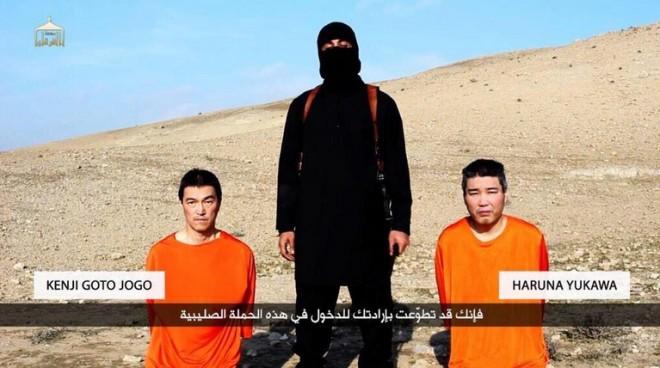
The 72-hour deadline set by the Islamic State to save the lives of the two Japanese hostages it has held will expire in a few hours, as Japanese officials scramble to establish direct contact with the terror group.
ISIS had demanded a whopping $200 million in exchange for the lives of Kenji Goto and Haruna Yukawa, who otherwise are expected to meet the same fate as several American and British hostages have in the past months.
The deadline expires at 2.50 p.m Friday, Tokyo time (12:50 a.m. ET) and Japanese officials are reportedly trying to get in touch with the group to urge them to spare the Japanese men.
Japanese Chief Cabinet Secretary Yoshihide Suga said that the government was trying to reach the group through a third party, either a local tribe or another nation, according to CNN.
Japanese Prime Minister Shinzo Abe also requested help from allies in the Middle East, days after he pledged $200 million to aid the nations in their fight against ISIS.
Abe has reportedly spoken with King Abdullah of Jordan, Turkish President Recep Tayyip Erdogan and Egyptian President Abdel-Fattah el-Sisi since the video emerged on Tuesday.
However, it is not yet clear if Japan will pay the ransom amount to the terror group. Japan seems to be stuck in a Catch-22 situation, experts believe, as the country was part of a G8 communique in 2013, which said that the nations "unequivocally reject the payment of ransoms to terrorists", according to CBC.
However, if it fails to pay the ransom, the ISIS militants are bound to execute the two hostages.
Experts are speculating if the Islamic State purposefully made an "unrealistic" demand by asking for $200 million only to grab headlines again.
"They kept (hostages Haruna) Yukawa and (Kenji) Goto locked up . . . waiting for Japan to announce their role in the fight against ISIS. They then issued a video on very short notice asking for more money than any government would be willing to pay," James Simpson, a Tokyo-based defense analyst, told The Japan Times.
"They win either way: Either Japan pays up and ISIS hits the jackpot, or they kill the hostages and spread their message of fear and terror to a new target," he said.

















